Climate change: NI 'should cut carbon emissions by 82% by 2050'
- Published
- comments
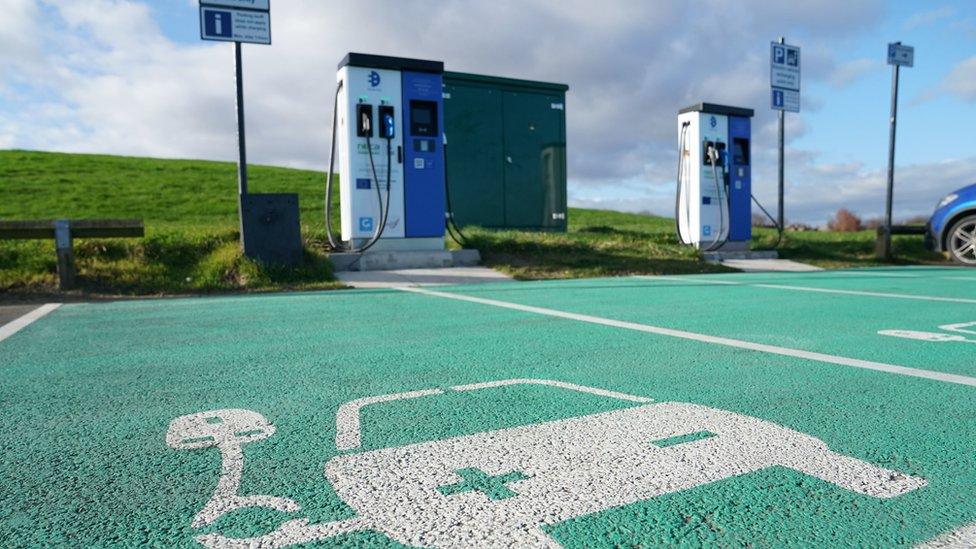
Electric cars will have to become the norm within the next decade
Northern Ireland has been advised to cut its carbon emissions by at least 82% by 2050 to help the UK achieve its net zero ambition.
It is the first time such a target for NI has been set by the government's advisory body.
The Committee on Climate Change said it had been able to advise on a target as NI was now committed to introducing binding climate legislation.
The UK government set its 2050 net zero target in law in 2019.
"The contribution from Northern Ireland is hugely important because we will not get to net zero unless Northern Ireland commits to this kind of target," said chief executive Chris Stark.
The committee's report said stubborn agricultural emissions meant Northern Ireland would not be able to reach net zero in the next 30 years.
There is an acceptance that given the sector's importance to the economy, other mitigations like mass tree planting will be required to compensate.
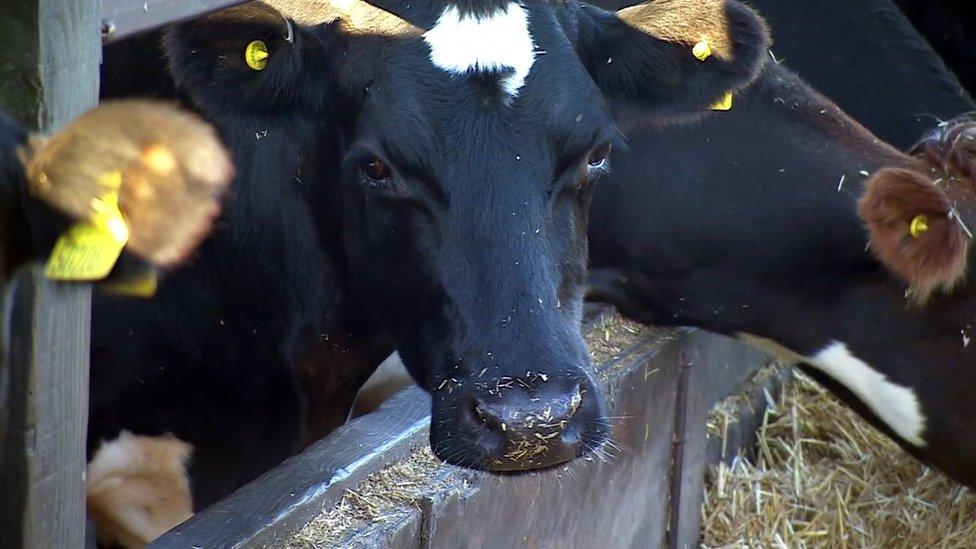
Methane from cattle is a contributor to greenhouse gas emissions
The environment minister has launched a public consultation on new climate laws.
Edwin Poots said tackling emissions was the "defining issue of our time."
People are being asked for views on two options.
One would see laws which would require NI to get to net zero by 2050.
The other would see laws which would require it to make an appropriate contribution to the wider UK net zero effort.
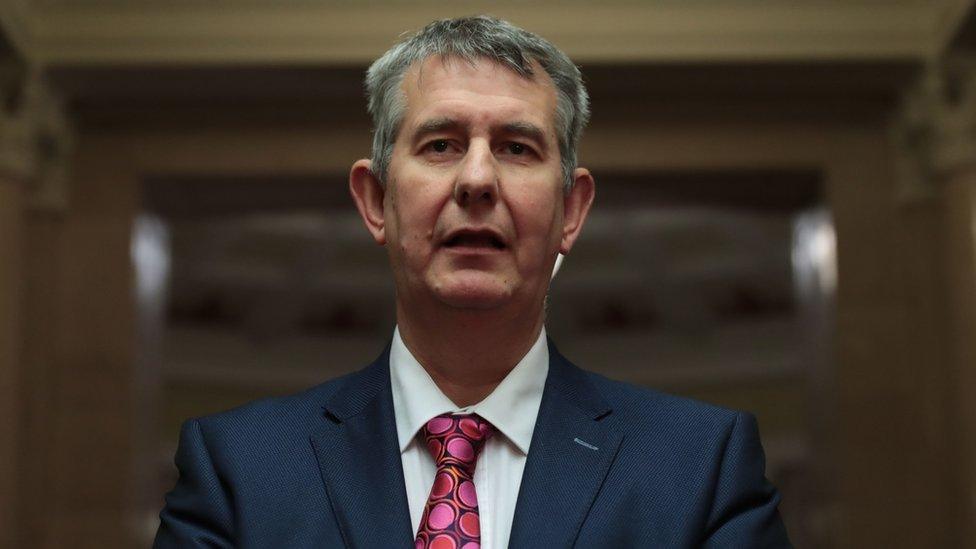
Edwin Poots said tackling emissions was the "defining issue of our time"
In 2018, Northern Ireland produced almost 20 million tonnes of greenhouse gases - a reduction of 20% from the 1990 baseline.
Some 27% of it was from agriculture including methane from cattle. Transport was the other big one at 23%.
Reaching the target will need behavioural change on travel and diet, as well as new policies on energy and the environment, the committee said.
The recommendation on emission cuts is in its sixth carbon budget published on Wednesday - the first since the net zero target was set.
It sets out targets for government and the devolved administrations on how to hit the target and comply with commitments made under the Paris Climate Agreement.
It means it has to eliminate emissions as much as possible and mitigate for any it can't by capturing carbon or planting trees.
The Committee on Climate Change said the next decade is key and will require people to change behaviour to help cut emissions.
There will have to be fewer flights; a reduction of 20% in meat and dairy consumption and less waste of food and other resources.
Electric vehicles will have to replace conventional ones and a greater concentration on recycling and energy efficiency will be required.
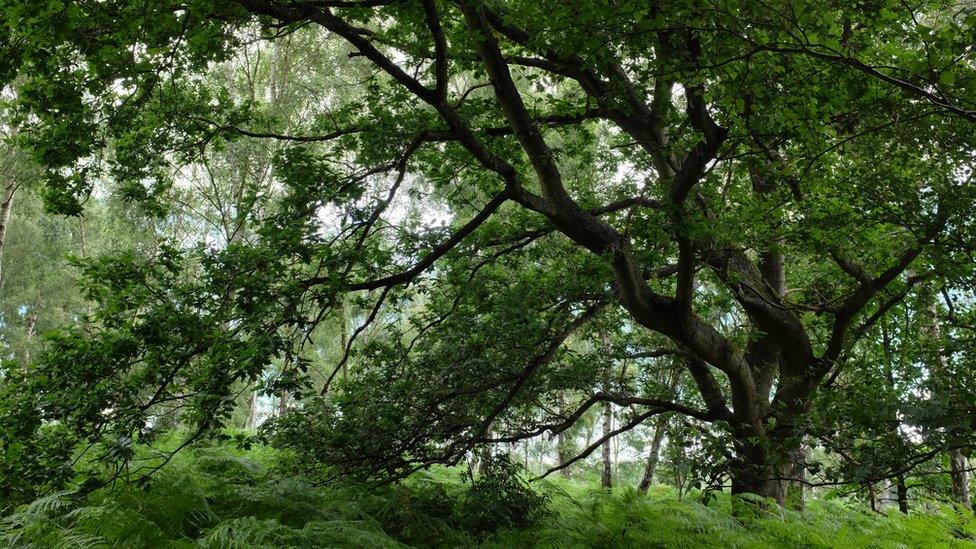
Northern Ireland has one of the lowest levels of woodland cover in Europe
Fossil fuel boilers will have to be banned and home heating provided by renewables and technologies like heat pumps.
Industry will have to change too, switching to electricity for power and hydrogen for heavy transport, and there'll be new industries to generate hydrogen and capture carbon.
There will also have to be a huge effort to restore degraded peatland and plant millions more trees.
It will require substantial investment, much of it by private companies, with the savings from lower-cost technologies eventually expected to cover the costs.
- Published3 December 2020
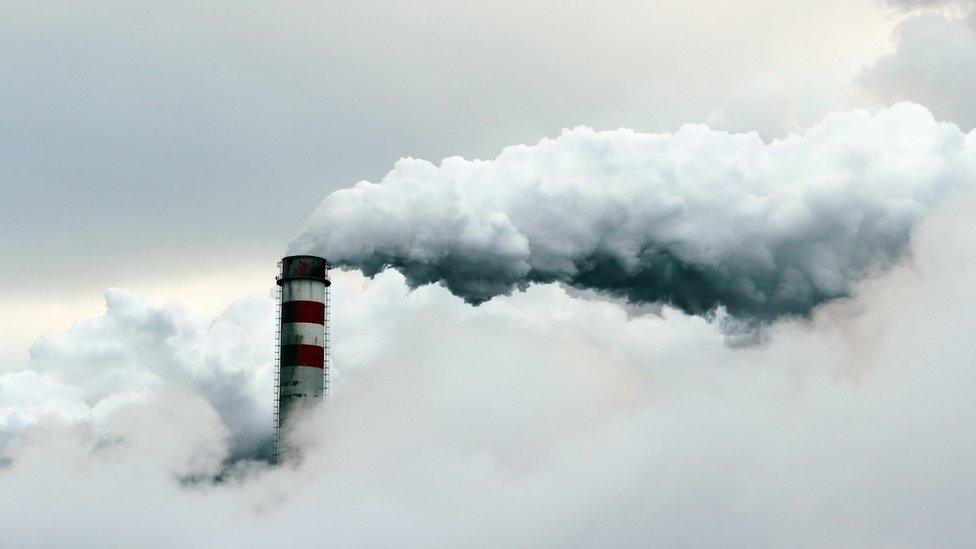
- Published12 June 2019
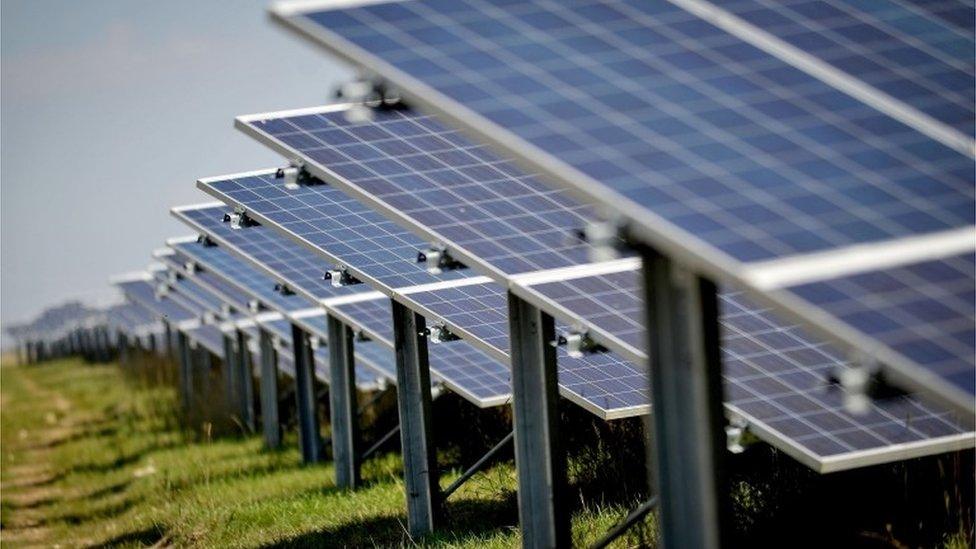
- Published4 December 2020
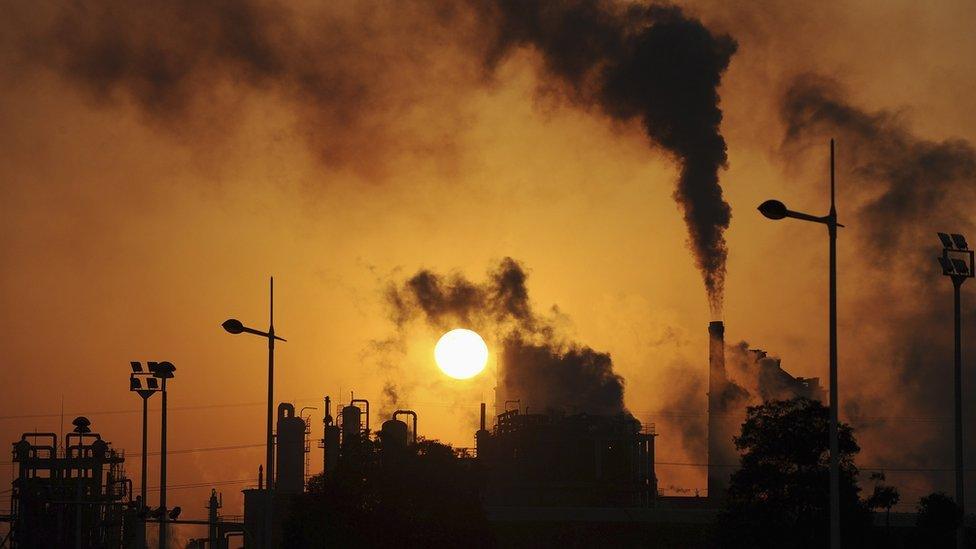
- Published2 March 2020

